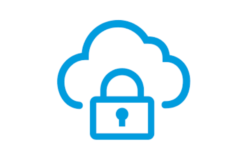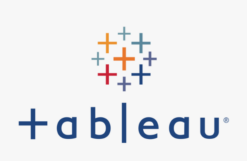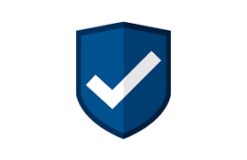Duration: 5 days – 35 hrs
Overview
Welcome to the Linux Administration Training Course, where you’ll acquire essential skills to effectively manage, configure, and optimize Linux-based systems. Whether you’re new to Linux or looking to deepen your expertise, this course covers key concepts and practical techniques for proficient Linux administration.
In the dynamic world of IT, the Linux System Administrator plays a pivotal role in ensuring the stability, security, and efficiency of Linux-based computer systems and networks. The Linux System Administrator Training course is designed to equip individuals with the knowledge and practical skills necessary to excel in this critical role.
Objectives
- Acquire fundamental knowledge of Linux system architecture.
- Master essential command-line operations for efficient navigation.
- Learn remote connection techniques using SSH.
- Develop proficiency in file and directory management.
- Understand user permissions and security measures.
- Gain insights into process management and monitoring.
- Explore software deployment through package managers.
- Set up various servers for web, FTP, VNC, and SSH.
- Configure desktop environments and user interfaces.
- Develop basic shell scripting skills for automation.
- Learn system maintenance and troubleshooting techniques.
Audience
- IT professionals aspiring to become Linux System Administrators
- System Administrators looking to specialize in Linux
- Network Administrators
- Software Developers
- Anyone interested in mastering Linux system administration
Pre- requisites
- Basic knowledge of computer systems and operating systems is beneficial but not mandatory.
- Familiarity with the Linux command line is helpful but not required.
Course Content
Linux Filesystem Tree Layout
- One Big Filesystem
- Data Distinctions
- FHS Linux Standard Directory Tree
- root (/) directory
- /bin
- /boot
- /dev
- /etc
- /home
- /lib and /lib64
- /media
- /mnt
- /opt
- /proc
- /sys
- /root
- /sbin
- /srv
- /tmp
- /usr
- /var
- /run
- Labs
Processes
- Programs and Processes
- Process Limits
- Creating Processes
- Process States
- Execution Modes
- Daemons
- niceness
- Libraries
- Labs
Signals
- Signals
- Types of Signals
- kill
- killall and pkill
- Labs
Package Management Systems
- Software Packaging Concepts
- Why Use Packages?
- Package Types
- Available Package Management Systems
- Packaging Tool Levels and Varieties
- Package Sources
- Creating Software Packages
- Revision Control Systems
- Available Source Control Systems
- The Linux Kernel and git
- Labs
RPM
- RPM (Red Hat Package Manager)
- Package File Names
- RPM Database and Helper Programs
- Queries
- Verifying Packages
- Installing and Removing Packages
- Updating, Upgrading and Freshening RPM Packages
- Upgrading the Linux Kernel
- rpm2cpio
- Labs
Dpkg
- DPKG (Debian Package)
- Package File Names and Source
- DPKG Queries
- Installing/Upgrading/Uninstalling
- Labs
Yum
- Package Installers
- yum
- Queries
- Verifying Packages
- Installing/Removing/Upgrading Packages
- Additional yum Commands
- dnf
- Labs
zypper
- zypper
- Queries
- Installing/Removing/Upgrading Packages
- Additional zypper Commands
- Labs
APT
- APT
- apt
- Queries
- Installing/Removing/Upgrading Packages
- Cleaning Up
- Labs
System Monitoring
- System and Network Monitoring
- sar
- System Log Files
- Labs
Process Monitoring
- Process Monitoring
- ps
- pstree
- top
- Labs
Memory Monitoring and Usage
- Memory Monitoring and Tuning
- /proc/sys/vm
- vmstat
- Out of Memory Killer (OOM)
- Labs
I/O Monitoring and Tuning
- I/O Monitoring
- iostat
- iotop
- ionice
- Labs
I/O Scheduling
- I/O Scheduling
- I/O Scheduler Choices
- Labs
Linux Filesystems and the VFS
- Filesystem Basics
- Filesystem Concepts
- Virtual Filesystem (VFS)
- Available Filesystems
- Journalling Filesystems
- Special Filesystems
- Labs
Disk Partitioning
- Common Disk Types
- Disk Geometry
- Partitioning
- Partition Tables
- Naming Disk Devices
- SCSI Device Names
- blkid and lsblk
- Sizing up partitions
- Backing Up and Restoring Partition Tables
- Partition table editors
- fdisk
- Labs
Filesystem Features: Attributes, Creating, Checking, Mounting
- Extended Attributes
- Creating and formatting filesystems
- Checking and Repairing Filesystems
- Mounting filesystems
- NFS
- Mounting at Boot and /etc/fstab
- automount
- Labs
Filesystem Features: Swap, Quotas, Usage
- Swap
- Filesystem Quotas
- Filesystem Usage
- Disk Usage
- Labs
The Ext2/Ext3/Ext4 Filesystems
- ext4 Features
- ext4 Layout and Superblock and Block Groups
- dumpe2fs
- tune2fs
- Labs
The XFS and BTRFS Filesystems
- XFS
- btrfs
- Labs
Encrypting Disks
- Filesystem Encryption
- LUKS
- cryptsetup
- Using an Encrypted Partition
- Mounting at Boot
- Labs
Logical Volume Management (LVM)
- Logical Volume Management (LVM)
- Volumes and Volume Groups
- Working with Logical Volumes
- Resizing Logical Volumes
- LVM Snapshots
- Labs
RAID
- RAID
- RAID Levels
- Software RAID Configuration
- Monitoring RAIDs
- RAID Hot Spares
- Labs
Kernel Services and Configuration
- Kernel Overview
- Kernel Configuration
- Kernel Boot Parameters
- sysctl
- Labs
Kernel Modules
- Kernel Modules
- Module Utilities
- modinfo
- Module Configuration
- Labs
Devices and udev
- udev and Device Management
- Device Nodes
- Rules
- Labs
Virtualization Overview
- Introduction to Virtualization
- Hosts and Guests
- Emulation
- Hypervisors
- libvirt
- QEMU
- KVM
- Labs
Containers Overview
- Containers
- Application Virtualization
- Containers vs Virtual Machines
- Docker
- Docker Commands
- Podman
- Labs
User Account Management
- User Accounts
- Management of User Accounts
- Locked Accounts
- Passwords
- /etc/shadow
- Password Management
- Password Aging
- Restricted Shells and Accounts **
- The root Account
- SSH
- Labs
Group Management
- Groups
- Group Management
- User Private Groups
- Group Membership
- Labs
File Permissions and Ownership
- File Permissions and Ownership
- File Access Rights
- chmod, chown and chgrp
- umask
- Filesystem ACLs
- Labs
Pluggable Authentication Modules (PAM)
- PAM (Pluggable Authentication Modules)
- Authentication Process
- Configuring PAM
- LDAP Authentication
Network Addresses
- IP Addresses
- IPv4 Address Types
- IPv6 Address Types
- IP Address Classes
- Netmasks
- Hostnames
- Labs
Network Devices and Configuration
- Network Devices
- ip
- ifconfig
- Predictable Network Interface Device Names
- Network Configuration Files
- Network Manager
- Routing
- DNS and Name Resolution
- Network Diagnostics
- Labs
Firewalls
- Firewalls
- Interfaces
- firewalld
- Zones
- Source Management
- Service and Port Management
- Labs
System Startup and Shutdown
- Understanding the Boot Sequence
- Boot Loaders
- System Configuration Files in /etc
- Shutting Down and Rebooting
- Labs
GRUB
- The Grand Unified Boot Loader (GRUB)
- Interactive Selections with GRUB at Boot
- Installing GRUB
- Customizing the GRUB Configuration
- Boot Loader Specification Configuration (BLSCFG)
- Labs
System Init: systemd, SystemV and Upstart
- The init Process
- Startup Alternatives
- systemd
- systemctl
- SysVinit Startup
- chkconfig and service
- Labs
Backup and Recovery Methods
- Backup Basics
- Backup vs Archive
- Backup Methods and Strategies
- tar
- Compression: gzip, bzip2 and xz and Backups
- dd
- rsync
- cpio
- dump and restore
- mt
- Backup Programs
- Labs
Linux Security Modules
- Linux Security Modules
- SELinux
- AppArmor
- Labs
Local System Security
- Local System Security
- Creating a Security Policy
- Updates and Security
- Physical Security
- BIOS
- Bootloader
- Filesystem Security
- setuid/setgid bits
- Labs
Basic Troubleshooting
- Troubleshooting Levels
- Troubleshooting Techniques
- Things to Check: Networking
- Things to Check: File Integrity
- Boot Process Failures
- Filesystem Corruption and Recovery
- Virtual Consoles
- Labs
System Rescue
- Rescue Media and Troubleshooting
- Using Rescue/Recovery Media
- System Rescue and Recovery
- Emergency Boot Media
- Using Rescue Media
- Emergency Mode
- Single User Mode
- Labs








